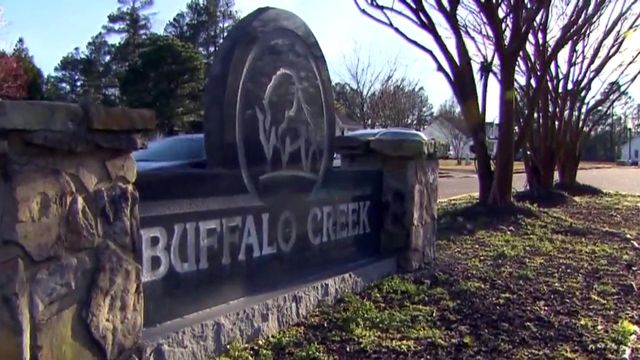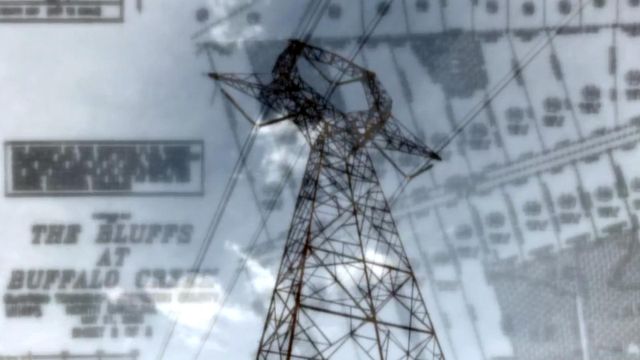Johnston homeowners face court fight over Duke Energy easement that threatens neighborhood
More than a dozen Johnston County homeowners were in court this week, fighting Duke Energy, a developer and others to keep their neighborhood together.
Posted — UpdatedHomeowners in the Buffalo Creek subdivision near Zebulon started receiving letters from Duke two years ago informing them their homes, or part of their land, are on property owned by the Charlotte-based utility. Carolina Power & Light, which later merged into Duke, acquired a 180-foot-wide easement in the area in 1987 for future power lines.
Yet, when developer Fred Smith Co. plotted the neighborhood off Thanksgiving Fire Road about a decade later, the planned transmission lines didn't show up on the maps, clearing the way for the homes. Subsequent title searches, surveys and research by real estate attorneys never picked up on the easement as homes in the neighborhood were bought and sold.
Buffalo Creek residents sued Duke, Smith and others as they try to salvage their homes or at least a fair settlement. The neighbors allege the utility abandoned the right to the easement after providing electricity for two decades with no mention of the problem.
The defendants argued in court this week that the lawsuit should be thrown out.
"Duke Energy is very sympathetic to the plaintiffs' situation in this case," Matthew Rhoad, an attorney for the utility said.
But Rhoad and Duke attorney Bill Moss made clear that homeowners are encroaching on a legally recorded easement.
"Duke is, in fact, the innocent party here," Moss said.
"It's frustrating to sit and hear the lawyers talk about our lives so cavalierly because they're not sitting in our shoes.," Buffalo Creek resident Nikki Thomson said.
Bo Walker, an attorney for the homeowners, pointed to a 1996 contract when CP&L agreed to run power to the homes in the restricted easement.
"If they allowed this neighborhood to be developed just so they could charge these homes for electricity with the knowledge that, some day, they can just come along and ask for those homes to be removed, I certainly think that's unconscionable," Walker said.
Although the homeowners didn't learn of the easement until 2017, the developers contend it's too late to sue because the home sales closed years ago.
"Their claim was filed for each one of those claims well after the statute of limitations expired," said Sean Madden, an attorney for Fred Smith Co.
"It's passing the buck," Buffalo Creek resident Norman Davis said. "There's no compassion there to say, 'Someone messed up somewhere down the line.'"
With their homes and futures in limbo, neighbors want a fair resolution.
"Just treat us fairly. We did everything we were supposed to do," resident Carly Williams said.
"By telling my clients that their homes are encroaching on their 1987 easement, they're basically holding the homes hostage," Walker argued. "My clients can't sell their homes now that they have actual knowledge of that easement, even though those homes were sold from 1996 to 2017 without any knowledge of anyone knowing anything about the easement."
Superior Court Judge Rebecca Holt took two days' worth of motions under advisement. There was no timetable on when she will rule whether to dismiss the lawsuit or keep the homeowners' claims for relief alive.
"This is a step we've got to go through," resident Craig Barnhart said. "It's part of the legal process, and hopefully, the judge is going to rule in our favor and the case goes forward."
Related Topics
• Credits
Copyright 2024 by Capitol Broadcasting Company. All rights reserved. This material may not be published, broadcast, rewritten or redistributed.






